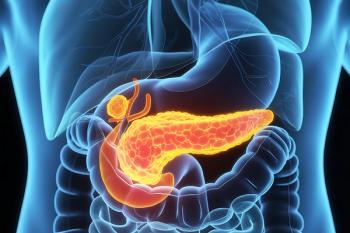
- Managed Healthcare Executive April 2019 Issue
- Volume 29
- Issue 4
3 Novel Diabetes Treatments Improving Patient Care
How new technologies are helping patients with diabetes better manage the disease.
Nearly 10% of the U.S. population, or 30.3 million people, have diabetes, according to the CDC. Technology is a large part of the research being put into the latest treatments for diabetes, with efforts to help patients manage their diabetes in safer more effective ways. Here are some of the most recent technology tools being researched and developed for diabetes treatment and management:
First interoperable insulin pump approved
The first insulin pump that can work with other diabetes therapy systems was
The
The insulin pump is described as an alternate controller enabled (ACE) infusion pump, because its ability to work with other diabetes technology allows treatment to be more customizable.
“The marketing authorization of the first ACE insulin pump intended for interoperable use has the potential to aid patients who seek more individualized diabetes therapy systems and opens the door for developers of future connected diabetes devices to get other safe and effective products to patients more efficiently,” says FDA commissioner Scott Gottlieb, MD.
Continuous glucose monitoring for diabetes prevention
As diabetes continues to climb globally, researchers say that mobile apps and wearables will allow everyone, even people without diabetes, the tools to monitor their glucose levels.
A
Related article:
“We found that many individuals considered nondiabetic by standard measures, in fact, experienced frequent elevations in blood glucose levels into the impaired glucose-tolerant or diabetic range,” the study’s authors reported. “We developed a model for determining the ‘glucotype’ of an individual, a more comprehensive measure of the pattern of glucose excursions than the standard laboratory tests in current use.”
By helping people become more aware of glucose level fluctuation, the researchers say that they could prevent and drastically lower type 2 diabetes complications. With the aid of a web portal, the researchers were able to make access to glucose readings easier for people to understand.
Insulin capsules for type 1 diabetes treatment
Researchers at the Massachusetts Institute of Technology (MIT) are developing a treatment for type 1 diabetes that could eliminate the need for patients to administer insulin via injections. A pill the size of a blueberry is being tested to deliver insulin directly to a patient’s stomach. The biodegradable pill would contain a small needle that would administer compressed, freeze-dried insulin directly into a patient’s stomach lining or small intestine.
A
The researchers, who have tested the capsule on animals-only, say it has a sugar coating that dissolves in the stomach and releases a spring that attaches the needle to the stomach lining or small intestine with no pain being felt by the patient.
In trials, the researchers found it took about an hour for the full dose of insulin to be administered. After the insulin dose, up to five milligrams in testing, the capsule passes through the digestive system.
The researchers at MIT are working with diabetes healthcare company Novo Nordisk to continue testing of the insulin capsule, along with developing other ways the capsule can be used to administer proteins to patients in a safe and easy way.
Donna Marbury is a writer in Columbus, Ohio.
Articles in this issue
almost 7 years ago
How Technology is Addressing SDOHalmost 7 years ago
The Future of the ACAalmost 7 years ago
How Payers Are Keeping Specialty Drug Costs Downalmost 7 years ago
3 New Approaches to Provide Individualized Diabetes Carealmost 7 years ago
11 Soft Skills Healthcare Executives Need to Succeedalmost 7 years ago
Team Approach Offers Hope of Increasing Diabetes Treatment Compliancealmost 7 years ago
How Health Systems Use Pharmacists to Reduce Readmissionsalmost 7 years ago
Cost Challenges Ongoing with Diabetes Drugsalmost 7 years ago
Four Ways Health Execs Can Engage ProvidersNewsletter
Get the latest industry news, event updates, and more from Managed healthcare Executive.























